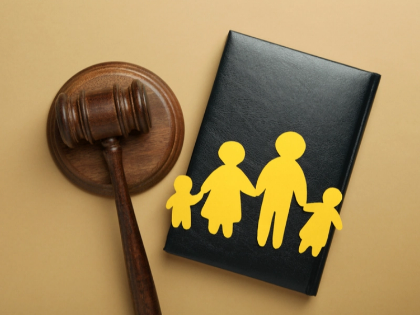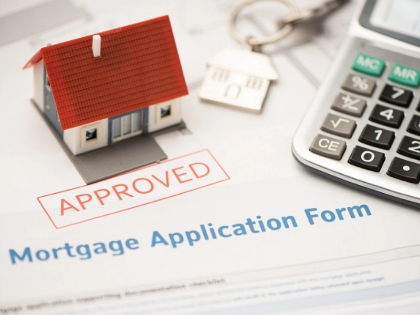Avoiding Loan Default and Handling the Repercussions
Loan default is a major problem with far-reaching effects. It may lower your credit score, which will make it more difficult for you to get loans or better interest rates later on. You run the risk of facing legal action as well, including lawsuits, wage garnishments, and debt collection. It's critical to comprehend how loan default occurs and your preventative options.
Preventive Actions

Brief Setbacks
 Missing loan installments will lower your credit score and make it more difficult for you to get loans. Depending on the loan type and agreement, you may or may not have long-term implications. For instance, the bank may take possession of your belongings if you fail to make payments on a secured debt that is secured by your home or vehicle. If you owe money on credit cards or other unsecured debt, you may be liable to wage garnishment or Treasury offset, which is the process of getting your federal tax refund back.
Regretfully, even the most conscientious borrowers may occasionally run into financial difficulties. For effective payback planning, it is essential to account for all borrowing-related expenses. In the event that you are unable to make your loan payment, get in touch with your lender as soon as possible to arrange a repayment schedule. It's conceivable that they will grant your request more readily than pursue legal action against you.
Missing loan installments will lower your credit score and make it more difficult for you to get loans. Depending on the loan type and agreement, you may or may not have long-term implications. For instance, the bank may take possession of your belongings if you fail to make payments on a secured debt that is secured by your home or vehicle. If you owe money on credit cards or other unsecured debt, you may be liable to wage garnishment or Treasury offset, which is the process of getting your federal tax refund back.
Regretfully, even the most conscientious borrowers may occasionally run into financial difficulties. For effective payback planning, it is essential to account for all borrowing-related expenses. In the event that you are unable to make your loan payment, get in touch with your lender as soon as possible to arrange a repayment schedule. It's conceivable that they will grant your request more readily than pursue legal action against you.
Consequences for Law
 Preventing the need for a loan in the first place is the strongest defense against loan default. Your ability to do this will depend on your own financial situation, but making and following a budget, setting up an emergency fund, and cutting back on discretionary spending can all be helpful.
It's critical to get in touch with your lender as soon as possible and work toward a resolution if you find yourself in a situation where you are unable to make your loan installments. Since defaulting is costly for borrowers and may affect their ability to obtain credit in the future, most lenders are ready to cooperate with consumers to avoid it.
Depending on the type of loan, there may be a variety of specific repercussions from a default, such as wage garnishment, legal action, property seizure (for secured loans), debt collection operations, and a major drop in your credit score. Even when the past-due amount has been settled, these effects could persist for years.
Preventing the need for a loan in the first place is the strongest defense against loan default. Your ability to do this will depend on your own financial situation, but making and following a budget, setting up an emergency fund, and cutting back on discretionary spending can all be helpful.
It's critical to get in touch with your lender as soon as possible and work toward a resolution if you find yourself in a situation where you are unable to make your loan installments. Since defaulting is costly for borrowers and may affect their ability to obtain credit in the future, most lenders are ready to cooperate with consumers to avoid it.
Depending on the type of loan, there may be a variety of specific repercussions from a default, such as wage garnishment, legal action, property seizure (for secured loans), debt collection operations, and a major drop in your credit score. Even when the past-due amount has been settled, these effects could persist for years.
Regaining Control after Default
 Loans are a handy tool for realizing aspirations in our fast-paced environment. Borrowers must, however, be fully aware of their obligations with regard to loan repayment. By doing this, they can avoid loan default's traps and the wide-ranging effects that come with them.
Thankfully, most lenders are willing to work with consumers to help them avoid the dire financial repercussions of defaulting on a loan. For instance, auto lenders would attempt to negotiate deferment or forbearance to prevent repossession, and mortgage lenders are ready to work with borrowers to help them avoid foreclosure through hardship arrangements.
Get in contact with your lender as soon as you can if you have missed loan installments. The interval between missing one payment and going into default is referred to as the delinquent period. Each lender has a different delinquent period length, but it usually starts when you miss a payment. If you pay your debt on time for nine consecutive months, you could also be able to consolidate or repair it.
Loans are a handy tool for realizing aspirations in our fast-paced environment. Borrowers must, however, be fully aware of their obligations with regard to loan repayment. By doing this, they can avoid loan default's traps and the wide-ranging effects that come with them.
Thankfully, most lenders are willing to work with consumers to help them avoid the dire financial repercussions of defaulting on a loan. For instance, auto lenders would attempt to negotiate deferment or forbearance to prevent repossession, and mortgage lenders are ready to work with borrowers to help them avoid foreclosure through hardship arrangements.
Get in contact with your lender as soon as you can if you have missed loan installments. The interval between missing one payment and going into default is referred to as the delinquent period. Each lender has a different delinquent period length, but it usually starts when you miss a payment. If you pay your debt on time for nine consecutive months, you could also be able to consolidate or repair it.








